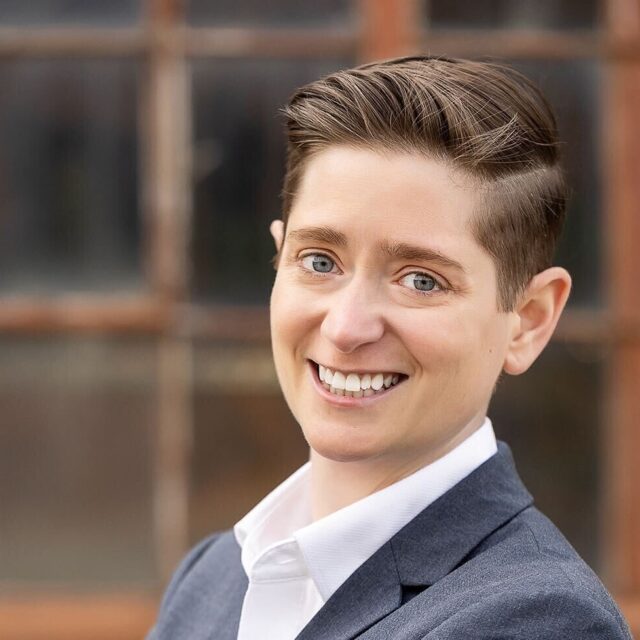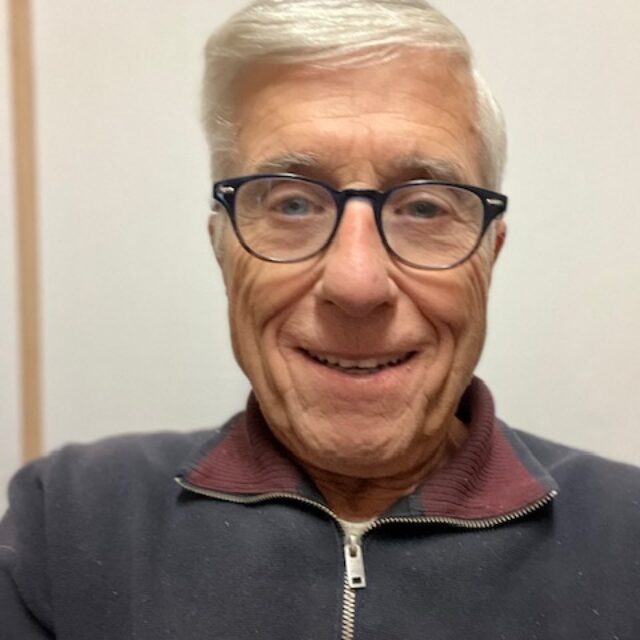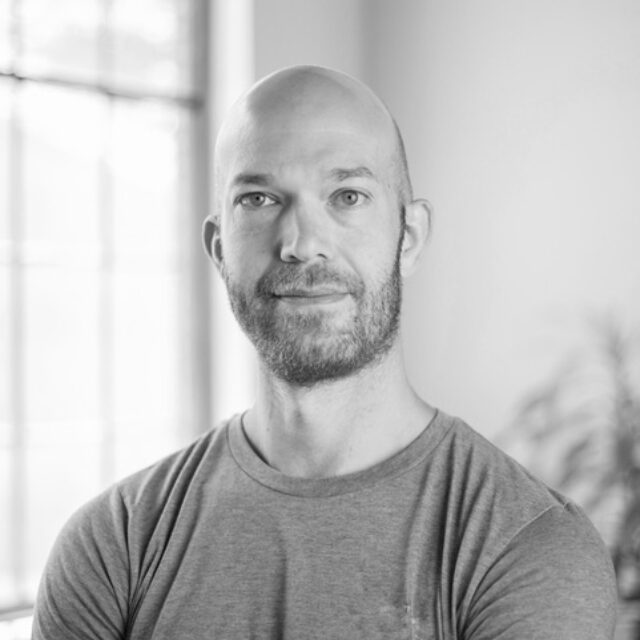Alex Sheldon: Gender-Affirming Care and Suicide Prevention

6.27.2023
Safety in Numbers
Welcome to Everytown Research’s Safety in Numbers blog, where we invite leading experts in the growing field of gun violence prevention to present their innovative research in clear, user-friendly language. Our goal is to share the latest developments, answer important questions, and stimulate evidence-based conversations on a broad range of gun safety topics in a form that allows all of us to participate. If you have a topic you want to hear more about, please feel free to suggest it at: [email protected].
Sarah Burd-Sharps, Senior Director of Research
Note: The views, opinions, and content expressed in this product do not necessarily reflect the views, opinions, or policies of Everytown.
Alex Sheldon is the Executive Director of GLMA: Health Professionals Advancing LGBTQ Equality, the oldest and largest association working for LGBTQ+ health equity. GLMA is a national nonprofit 501-c3 organization founded in 1981 with the mission to advance LGBTQ+ health equity. They play a key advocacy role among other health professional organizations—GLMA is the only LGBTQ+ organization with a voting seat in the American Medical Association’s (AMA) House of Delegates, where they have advanced countless LGBTQ+ affirming resolutions. Through their educational initiatives, including the Annual Conference on LGBTQ+ Health, they foster collaboration between health professionals, researchers, and community leaders, and create an environment where providers are educated and empowered to deliver gender-affirming services.
Can you tell me a little about your work on gender-affirming care?
GLMA has been at the forefront of advancing gender-affirming care for decades, and through our advocacy initiatives and educational resources, we continue to break down barriers, dismantle stigma, and pave the way for a more inclusive future where all individuals have access to the care that aligns with their authentic selves.
In the advocacy space, GLMA has played a pivotal role in advocating for and advancing policies and practices that ensure transgender and non-binary individuals receive the compassionate and affirming care they deserve. We bring to bear the expertise of our extensive, multidisciplinary health professional membership to weigh in on policies ranging from federal to hyper-local matters.
All of our work is directed by the extensive expertise of thousands of health professionals in our membership, both past and present, and that expertise informs our fundamental belief that gender-affirming care is not only evidence-based care, but life-saving care.
What is compelling or unique about the research you’ve seen in this space?
What I think is unique about the research in this space is that there are almost no grey areas. If you listen to the fear-mongering narrative of anti-trans advocates, you’d be led to believe that there is a big debate over gender-affirming care, that there are two sides to the story about its safety and necessity. But when you look at the medical evidence, the truth is that gender-affirming care is medically-necessary and life-saving—and that truth is incontrovertible.
Research by the National Institutes of Health (NIH) and American Psychiatry Association (APA) published in multiple medical journals such as AMA’s Journal of Ethics consistently demonstrates positive outcomes for youth who have access to gender-affirming care. Studies have shown that gender-affirming care contributes to lower rates of depression, anxiety, and substance abuse among transgender and gender-diverse youth and can foster positive social adjustment, healthier relationships, and improved quality of life.
Research also demonstrates that fewer than 1 percent of those who undergo gender-affirming treatments express any form of regret. The rate of expressed regret is dramatically lower than other common medical interventions, such as joint replacements and rhinoplasty, which have regret rates as high as 15 percent.
What are three implications of this research/work?
Honestly, I struggle to call them implications when the impacts are so explicit. We can draw a straight line from banning gender-affirming care–both lack of access to affirming care and the message sent through attempting to pass such restrictions–to an increase in suicidality amongst our most vulnerable young people. And we know that these hateful restrictions are being introduced and, mostly, passed in southern states where gun ownership far outpaces other regions of the United States.
So, essentially, we are witnessing a compounding crisis. We are witnessing a narrowing of access to crucial medical interventions, which will exacerbate the vulnerability of trans and non-binary young people in mental health struggles. And this is occurring in the very states where the sheer prevalence of firearms increases the lethality of suicide. With a 90% death rate, we know unequivocally that the deadliest method of suicide is a firearm.
This is a recipe for true disaster. The fight at the intersection of gun violence prevention and LGBTQ+ rights cannot be overemphasized in its significance as a public health crisis.
What are some key areas where more research is needed?
Gun violence is a significant concern for the LGBTQ+ in multiple realms. In addition to the direct hate-driven violence that plagues the LGBTQ+ community and the mental health concerns previously mentioned, LGBTQ+ people are also disproportionately affected by intimate partner violence. This is especially true for transgender or gender non-conforming individuals, and LGBTQ+ folks who exist at the intersections of multiple marginalized identities.
We also know that when LGBTQ+ individuals experience intimate partner violence, they are less likely than the general population to receive the support they need and deserve. I would love to see more research around this that could better inform individuals, communities, and organizations engaging in IPV prevention and harm reduction.
We also know that LGBTQ+ people are victims of interpersonal violence and hate crimes at higher rates than victims of religiously or racially motivated crimes – and that these risks compound for queer and trans people of color. While these statistics are documented, there needs to be further research into the specific rhetoric and the organizations manufacturing this rhetoric at scale that drives this violence. Hate speech is violence and is an immediate and explicit precursor to physical violence that often includes use of firearms.
What solutions should be implemented to protect gender affirming care, reduce suicide among LGBTQ+ youth, and combat hateful rhetoric?
First and foremost, we need a profound cultural shift, one that places medical evidence at the forefront of policy making. Much of our current political reality is governed by hateful ideologies and the whims of special interest groups, all to the exclusion of actual scientific evidence. So much so that the study of gun violence, much less gun violence prevention, was severely restricted by the federal government for more than 20 years.
As the leader of an organization representing health professionals and advocating for LGBTQ+ health equity, if I had to boil down my mission to one singular goal it would be to center medical experts in the conversations that will govern the care they were trained to provide, conversations that will impact their patients and their community, and solutions designed to prevent medical interventions in the first place.
What educational resources would you recommend sharing with parents (or doctors or teachers) of LGBTQ+ kids?
Organizations like PFLAG have been engaged in supporting LGBTQ+ youth and their families for decades. They can be a great way to tap into general resources or to connect individuals with local chapters or other affirming organizations in their communities. There are also a lot of amazing LGBTQ+ clinics out there, like the Callen-Lorde Center in New York or the Los Angeles LGBT Center – although many of these clinics are more accessible for folks living in urban areas. The Movement Advancement Project (MAP) has compiled a list of resources that are specific to the unique needs of LGBTQ+ individuals living in rural areas.
And of course, I recommend that medical providers interested in this issue become GLMA members! We provide resources and support to health professionals that mitigate harm and expand awareness to advance this and other LGBTQ+ health equity issues.
Is there anything else you would like to share about your work and/or gun violence prevention in general?
My central message is that this is the moment to get involved. During my time at Everytown, I had the incredible fortune of meeting so many passionate people who got involved with Moms Demand Action or Students Demand Action, many of whom had not been personally affected by gun violence but were activated by the sheer urgency of the situation in this country.
What I want to impart to those same people now is that this is your moment to get activated to protect LGBTQ+ people from political violence, this is your moment to stand with us.
About Alex Sheldon
Alex Sheldon is a researcher, strategist, and advocate with over 15 years of experience in the field of human rights with a concentration in LGBTQ+ rights. Prior to joining GLMA, Alex was the Head of Research & Social Impact at an LGBTQ+ start-up company, where they specialized in economic inclusion for LGBTQ+ people. Previously, Alex served as the Deputy Director of the Clinton Global Initiative (CGI) at the Clinton Foundation, and they held roles at Everytown for Gun Safety, the Movement Advancement Project (MAP), and several international nonprofits.





